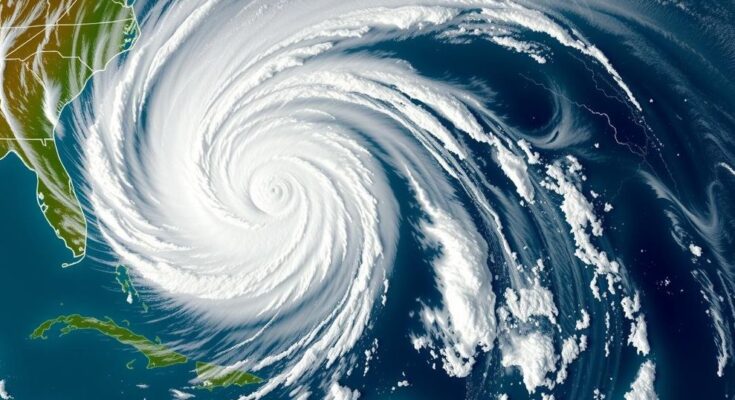Tropical Storm Dikeledi is advancing towards Mozambique following its impact on Madagascar, where it resulted in three deaths. The storm has weakened but is poised to intensify as it approaches Mozambique, imposing a red alert in Mayotte, significantly affecting the local population and infrastructure.
On Monday, Tropical Storm Dikeledi advanced towards Mozambique after wreaking havoc in Madagascar, resulting in three fatalities and significant flooding in Mayotte, a French territory. Initially hitting Madagascar’s northern coast as a cyclone on Saturday, Dikeledi unleashed powerful winds and torrential rain, subsequently weakening into a severe tropical storm. By Sunday evening, it was positioned approximately 150 kilometers away from Mozambique, with forecasters predicting that it would strengthen further over the warm waters of the Mozambique Channel.
The prefect of Mayotte, Francois-Xavier Bieuville, maintained a red alert for the territory, emphasizing the region’s vulnerability to severe weather. Although local residents remained confined to their homes due to the alert, some ventured out, taking minor actions to mitigate the impacts of the storm, such as reinforcing roofs. More than 4,000 personnel, including members of the police and military, were mobilized in response to the crisis, as the government prepared accommodation centers to support displaced individuals.
As Dikeledi continues to gather momentum, the Nampula region of Mozambique is expected to face severe weather conditions, including heavy rain and destructive winds. The ongoing cyclone season, which generally peaks from November to March, is intensified by rising ocean temperatures, a phenomenon related to global warming. This recent storm follows closely on the heels of Cyclone Chido, which previously caused devastating damage and loss of life in the region.
Residents of Mayotte expressed feelings of trauma and anxiety over the relentless cycle of storms that have affected their lives, particularly with the rainy season still underway. This ongoing exhaustion reflects a broader concern regarding the environmental changes exacerbating storm patterns in the Indian Ocean region.
Tropical storms and cyclones are common in the Indian Ocean, typically developing from November through March. The region has been affected by several severe weather events lately, including Cyclone Chido, which resulted in significant casualties and damage. The interplay of seasonal rainfall and increasingly warm ocean temperatures has raised concerns about the intensity and frequency of these storms, drawing the attention of meteorologists and disaster management authorities alike.
In conclusion, the trajectory of Tropical Storm Dikeledi towards Mozambique highlights the increasing vulnerability of the region to severe weather events, particularly in the wake of Cyclone Chido. The preparations in Mayotte underscore the need for effective disaster management strategies to protect the population from repeated cyclonic impacts. With the ongoing rainy season and rising sea temperatures, the likelihood of further weather-related disruptions remains a pressing challenge for the communities in the affected areas.
Original Source: www.arabnews.com




